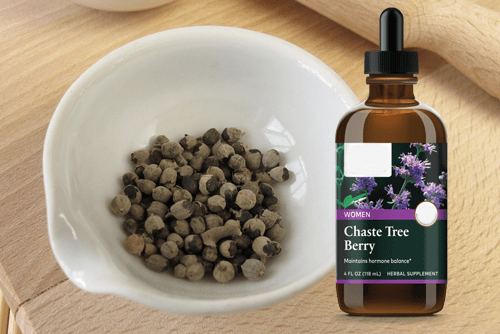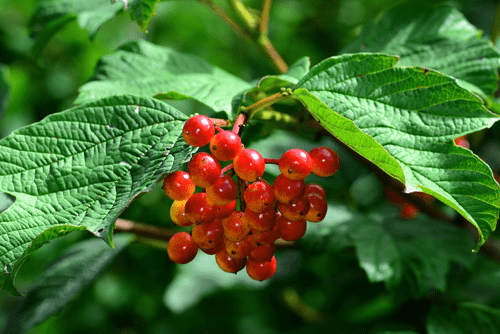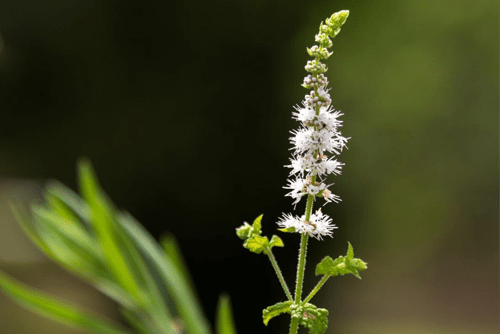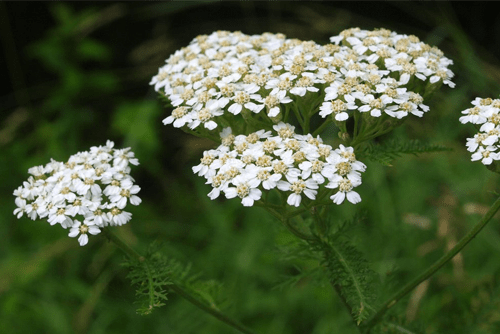In 1987, pharmaceutical company Eli Lilly launched the first antidepressant PROZAC. During the sales meeting, the company managers ordered sales reps to target OBGYN and sell them on Prozac as a treatment for the symptoms of Premenstrual Syndrome (PMS), such as depression, mood swings, and anxiety.
My friend, that’s Big Pharma MO. Sell drugs that never CURE anything… that only manage the symptoms. That’s the only way people will keep buying. Well, let me tell you… you do NOT need to take Prozac or any other prescription drugs for PMS.
Unfortunately, that’s what many women do. They routinely reach for ibuprofen, antidepressants, sleeping pills, and other drugs to manage the monthly cycle of hormonal ups and downs. It doesn’t have to be that way. There are some nontoxic, natural remedies available to you right now. Here are a few…
Remedy #1: Chaste tree berry for premenstrual syndrome (PMS)

According to the American College of Obstetricians and Gynecologists, more than 85% of women experience at least one uncomfortable premenstrual syndrome side effect. With the natural secrets, you’re about to find out, you won’t have to live in misery.
Chaste Tree Berry can help regulate the menstrual cycle, control ovulation, eliminate irritability, fatigue, and mild depression presented in premenstrual syndrome. In fact, A study of 170 women published in the British Medical Journal showed that 52% found relief from PMS-related irritability, mood changes, and headaches by taking this herb.
I recommend one or two capsules of dried herb standardized to 0.6% acubin (the active ingredient of chaste berry). You could also take 30-40 drops of chaste tree berry tincture twice a day between meals for two months.
To relieve premenstrual cramps, belly swelling, and tightness in the breasts, you may also use one of the following natural treatments:
- Drink infusions of Dong Quai (Chinese herb containing natural phytoestrogens)
- Take 500-1000 mg of Dong Quai 2 or 3 times per day and 100-500 mg of ginseng 3 times per day.
- Boil 25 grams of raspberry leaves and drink twice a day
- Boil 5 chestnuts in ¼ lt water, strain, and drink
- Prepare a juice made of spinach, watercress, carrot, and beets
- Eat boiled green asparagus.
All of these natural remedies will help mitigate the discomfort of PMS from day one.
Remedy #2: Cramp Bark for menstrual cramps

Instead of popping ibuprofen, try this native American herb. Its ability to relieve cramps is so well known that it has become a part of its name. This bark from the viburnum acts directly on the muscles of the uterus and encourages them to relax. The active ingredients are aesculetin and scopoletin, two compounds that have proven scientifically effective in relieving muscle spasms and cramps. This herb is often mixed with ginger to create pleasant and effective teas. You can take one to two droppers of tincture in water every two hours as needed.
Ginger taken as an infusion can also help reduce pain levels and is ideal for those who experience nausea during menstruation. Chamomile tea can relax the uterine muscles and reduce inflammation. Finally, drinking peppermint tea can ease the pain associated with menstrual cramps and possibly also prevent back pain.
Remedy #3: Black Cohosh for Hot flashes and night sweats

Black Cohosh (Actaea racemosa) is a plant traditionally used to treat gynecological disorders. It can help relieve hot flashes, night sweats, palpitations, anxiety, insomnia, and mood swings. It contains phytoestrogens that help many women manage these symptoms. Published clinical research suggests that Black Cohosh, apart from helping soothe the uncomfortable symptoms of menopause, boosts the body’s function by balancing the hormone level. Its mild estrogenic properties help to generate such balance by binding to estrogen receptors. In this way, it achieves a greater body harmony and relieves hot flashes or night sweats.
Black Cohosh is available as a fresh or dried root or in pill form. You can take 20 milligrams twice daily. Do not take this if you have a liver disorder or if you’re pregnant or breast-feeding.
Other studies show that red clover also proved to be excellent in decreasing hot flashes and reducing the severity of night sweats. After 8 weeks of consuming the daily red clover, participants experienced a 58% improvement.
Also, consider the herb hops. A recent study involving 120 women who were suffering from hot flashes showed some amazing results. In just 90 days, the women on hops experienced a 94.5% decrease in hot flashes, compared to a 0.8% decrease in the placebo group. Even better… there were no side-effects.
Remedy #4: Yarrow for heavy periods

When it comes to excessive menstruation, you can use medicinal plants as long as any organic dysfunction has been ruled out. In this case, yarrow is your best choice. A 2013 University of Maryland Medical Center report says it may work by relaxing the smooth muscle in the uterus.
You can take two droppers of tincture every half hour until bleeding slows.
Final Recommendations
Aside from these herbs, there are also some vitamins and minerals that offer particular benefits for perimenopausal and menopausal women. These include vitamin E to help reduce hot flashes and night sweats; Vitamin C, which helps the absorption of vitamin E and decreases capillary fragility; calcium; and magnesium which is essential to help with calcium absorption.
Finally, it is important to note that although these suggestions generally work for many women, each body reacts differently to different treatments, and finding the right treatment or combinations of treatments for you may take longer than expected. But hopefully, I gave you some good ideas here to get started.
Click below and order my favorite menopause supplements:
Estrovera, Black Cohosh Plus, Chasteberry plus.

